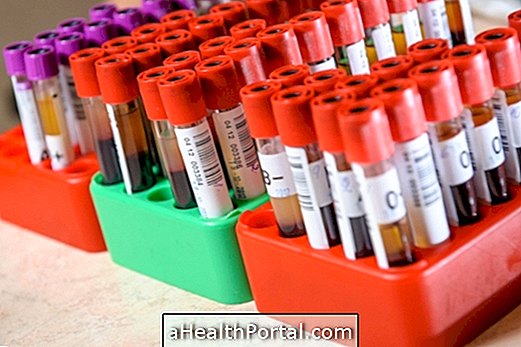Neutrophils are part of the portion of the blood responsible for the body's defense and immunity, leukocytes. They are responsible for wrapping diseased cells, eliminating them next, and are specialized in fighting bacteria and fungi.
Neutrophils are produced and stored in the bone marrow and their reference values are: 40-80% or, ie, 1800 to 8000 / mm3. Thus, when neutrophils are high this usually indicates that the person has some bacterial or fungal infection.
Sometimes the blood test also indicates the number of rods and segmented neutrophils. The rods are the neutrophils that have just been produced to beat the infection and the segmented ones are the oldest and their values can indicate how long the body has been fighting the infection.

Possible changes
For neutrophils, the blood count or the leukogram may indicate:
1. High neutrophils
The high neutrophil value, also known as neutrophilia, can arise in case of stress, exaggerated physical exercise, medication use with adrenaline, but especially in situations such as:
- Infections;
- Inflammatory disorders;
- Diabetes;
- Uremia;
- Eclampsia in pregnancy;
- Hepatic necrosis;
- Chronic myeloid leukemia;
- Polycythemia, post-splenectomy;
- Hemolytic anemia;
- Bleeding;
- Burn;
- Electric shock;
- Cancer.
Thus, if the neutrophil count is high, the doctor may order other diagnostic tests to correctly identify the cause and initiate appropriate treatment.
2. Low neutrophils
Neutropenia, or low neutrophil concentration, occurs when there are situations such as:
- Anemia aplastic, megaloblastic or iron deficiency;
- Leukemia;
- Hypothyroidism;
- Cirrhosis.
Babies younger than 3 months of age have few neutrophils, so in case of serious infections your blood test may indicate low neutrophils rather than high neutrophils. Children with Down syndrome also tend to have low neutrophils without any health problems.























